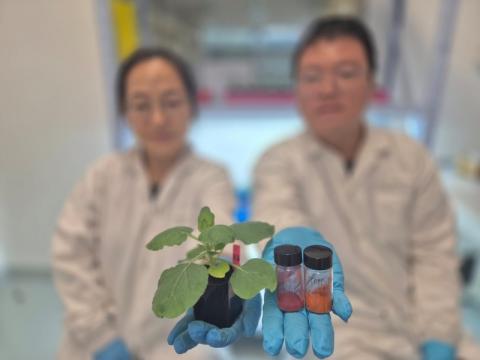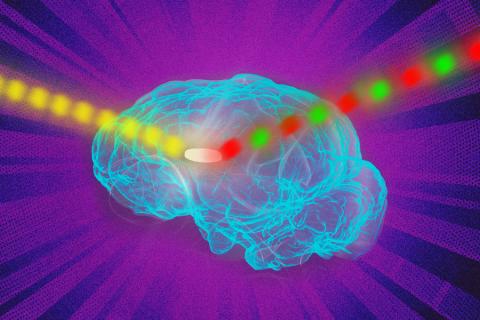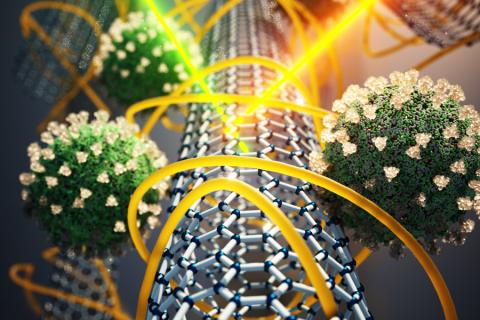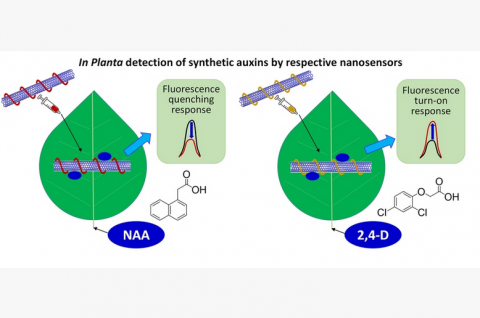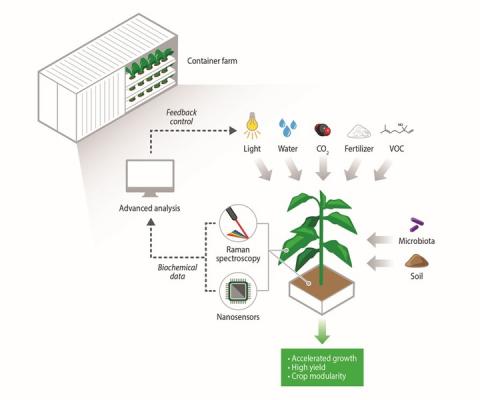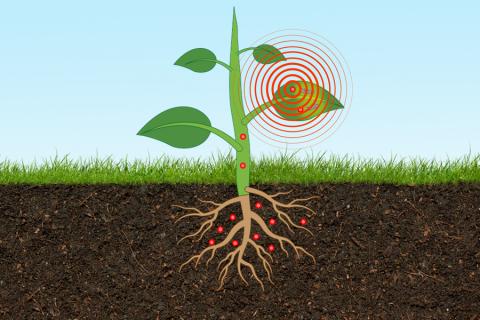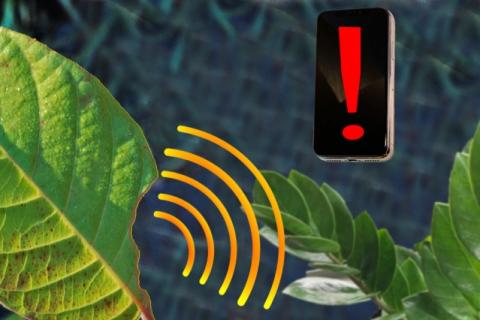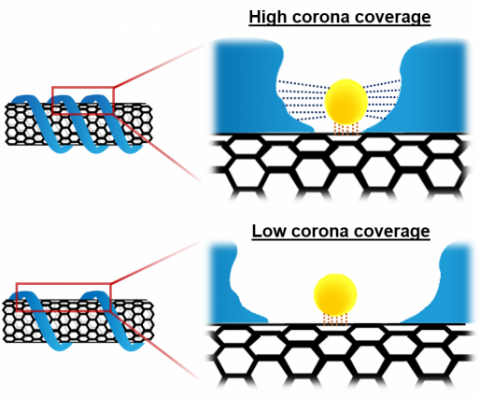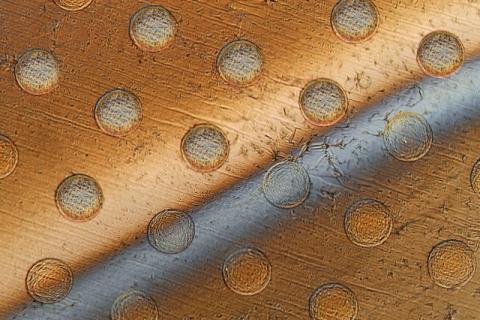Sensors developed by SMART researchers are capable of detecting pH changes in plant xylem enable farmers to detect drought stress up to 48 hours before visible physical symptoms manifest.
Michael Strano
Plant sensors could act as an early warning system for farmers
MIT engineers boost signals from fluorescent sensors
The advance allows the particles to be placed deeper within biological tissue, which could aid with cancer diagnosis or monitoring.
Carbon nanotube-based sensor can detect SARS-CoV-2 proteins
The technology could be developed as a rapid diagnostic for Covid-19 or other emerging pathogens.
Researchers design sensors to rapidly detect plant hormones
SMART nanosensors are safer and less tedious than existing techniques for testing plants’ response to compounds such as herbicides.
SMART develops analytical tools to enable next-generation agriculture
Engineered plant nanosensors and portable Raman spectroscopy will help enable sustainable practices in traditional and urban agriculture.
SMART researchers engineer a plant-based sensor to monitor arsenic levels in soil
Nanoscale devices integrated into the leaves of living plants can detect the toxic heavy metal in real time.
Nanosensor can alert a smartphone when plants are stressed
Carbon nanotubes embedded in leaves detect chemical signals that are produced when a plant is damaged.
SMART discovers nondisruptive way to characterize the surface of nanoparticles
New method overcomes limitations of existing chemical procedures and may accelerate nanoengineering of materials.
How to mass produce cell-sized robots
Technique from MIT could lead to tiny, self-powered devices for environmental, industrial, or medical monitoring.


